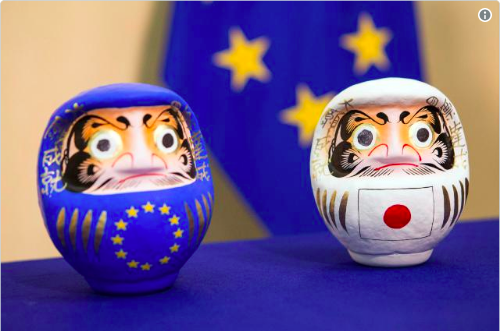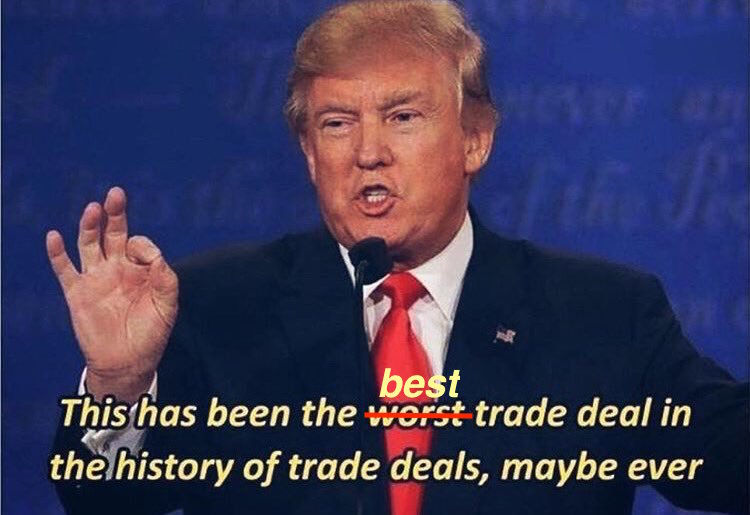EU moves forward
European Commission proposes new trade deals with Singapore and Japan

This week the European Commission has given the green light for the proposals of two Free Trade Agreement with Singapore and Japan. They must be approved by the Parliament and the Council and the hopes are to start implementing them at record-breaking pace before the Spring of 2019.
 The most important agreement is the one with Tokyo, which foresees dropping 90% of the current tariffs between Europe and Japan with over 1 billion Euro saved yearly by European exporters. Together, according to Cecilia Malmstroem, the two countries cover 600 million consumers and one-third of the world GDP. Among the sectors touched by the agreement, the automotive one plays a key role, given that Japanese firms have heavily invested in the continent future, especially in Britain where Toyota is a key industrial player. One of the reasons why it’s important to finalize the deal by next spring is that if they do so, then the new legislation will apply to Britain too during the two years transition period, without the need to draft and approve a whole new bi-lateral deal between London and Tokyo. Furthermore, the Singapore agreement it’s particularly interesting for the role that the city-state has as an access point for the South-East Asia market while the negotiations continue with other actors in the region like Malaysia, Vietnam, Thailand, Philippines and Indonesia.
The most important agreement is the one with Tokyo, which foresees dropping 90% of the current tariffs between Europe and Japan with over 1 billion Euro saved yearly by European exporters. Together, according to Cecilia Malmstroem, the two countries cover 600 million consumers and one-third of the world GDP. Among the sectors touched by the agreement, the automotive one plays a key role, given that Japanese firms have heavily invested in the continent future, especially in Britain where Toyota is a key industrial player. One of the reasons why it’s important to finalize the deal by next spring is that if they do so, then the new legislation will apply to Britain too during the two years transition period, without the need to draft and approve a whole new bi-lateral deal between London and Tokyo. Furthermore, the Singapore agreement it’s particularly interesting for the role that the city-state has as an access point for the South-East Asia market while the negotiations continue with other actors in the region like Malaysia, Vietnam, Thailand, Philippines and Indonesia.
One key differentiating the two proposals is that the Japanese one will only need approving of the European Council and the European Parliament without the single approvals of national parliaments. In the case of Singapore, the commercial part of the agreement follows the same procedure as for Japan, but the investments chapter (which does not exist in the case of Japan) will have to be approved by each national parliament. The fact that this veto power is being taken away from the member states is provoking some protests, like for example the Italian farmers’ organization Coldiretti which lamented a lack of protections for recognizable Italian food products like Grana Padano. This centralization in decision-making was made on purpose to avoid the fate of the long-discussed agreement with Canada (CETA) on which the new trade deal is based on and that at one point was on the verge to collapse due to a veto from a Belgian regional parliament.
 This long-awaited agreement came in a time of global turmoil on tariffs and trade and is a clear signal to Trump’s trade war with China and to all the businesses and corporations around the world. In fact, Japan Prime Minister Shinzo Abe is visiting the US this week to meet with President Trump and get some favorable conditions and not to get caught in the crossfire of the current trade war. Equally interesting is the fact that the EU is pushing (and for the moment succeeding) in being excluded from US tariffs and at the same time is negotiating trade deals with Mexico, Australia, New Zealand and the Mercosur, establishing itself as a safe haven and defender of global trade, if done the “European” way.
This long-awaited agreement came in a time of global turmoil on tariffs and trade and is a clear signal to Trump’s trade war with China and to all the businesses and corporations around the world. In fact, Japan Prime Minister Shinzo Abe is visiting the US this week to meet with President Trump and get some favorable conditions and not to get caught in the crossfire of the current trade war. Equally interesting is the fact that the EU is pushing (and for the moment succeeding) in being excluded from US tariffs and at the same time is negotiating trade deals with Mexico, Australia, New Zealand and the Mercosur, establishing itself as a safe haven and defender of global trade, if done the “European” way.
In the end, this agreement is single-handedly a strong signal to the US, Japan, the UK as well as Global players like China, India and Russia that even with political divisions as rampant as ever, the leading world aggregated economy can still impose its way and that’s a fact. Speaking of political division, here comes the double-edge of this sword, which is that if we fail to approve these trade deals because of internal feuds and egoism, then we will be sending a signal alright, the signal that our Byzantine political system is getting in the way of business, buyers beware.
